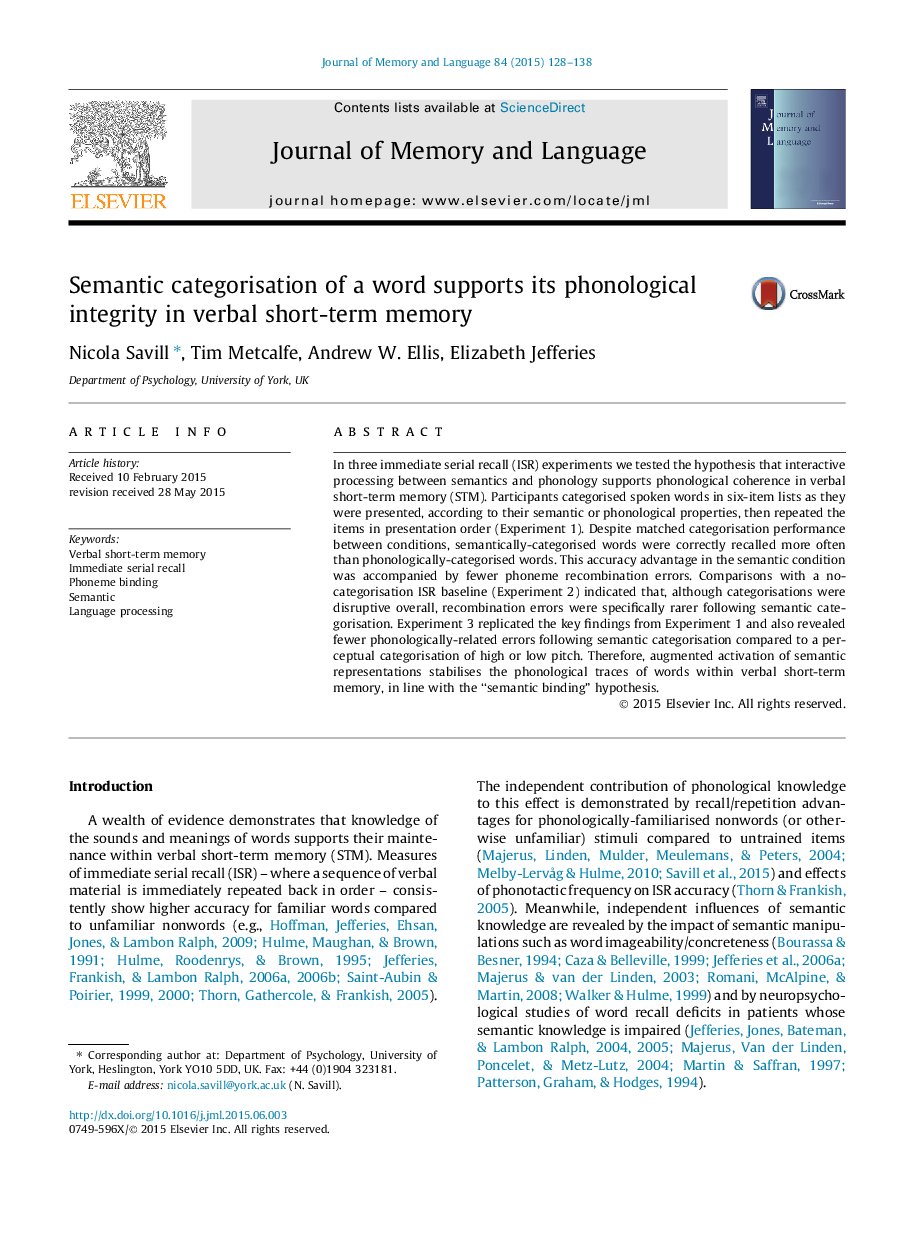| Article ID | Journal | Published Year | Pages | File Type |
|---|---|---|---|---|
| 7297021 | Journal of Memory and Language | 2015 | 11 Pages |
Abstract
In three immediate serial recall (ISR) experiments we tested the hypothesis that interactive processing between semantics and phonology supports phonological coherence in verbal short-term memory (STM). Participants categorised spoken words in six-item lists as they were presented, according to their semantic or phonological properties, then repeated the items in presentation order (Experiment 1). Despite matched categorisation performance between conditions, semantically-categorised words were correctly recalled more often than phonologically-categorised words. This accuracy advantage in the semantic condition was accompanied by fewer phoneme recombination errors. Comparisons with a no-categorisation ISR baseline (Experiment 2) indicated that, although categorisations were disruptive overall, recombination errors were specifically rarer following semantic categorisation. Experiment 3 replicated the key findings from Experiment 1 and also revealed fewer phonologically-related errors following semantic categorisation compared to a perceptual categorisation of high or low pitch. Therefore, augmented activation of semantic representations stabilises the phonological traces of words within verbal short-term memory, in line with the “semantic binding” hypothesis.
Related Topics
Life Sciences
Neuroscience
Cognitive Neuroscience
Authors
Nicola Savill, Tim Metcalfe, Andrew W. Ellis, Elizabeth Jefferies,
